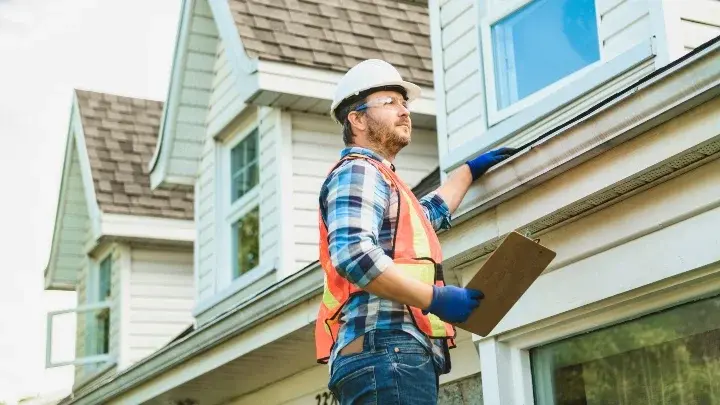5 Questions to Ask Yourself Before Buying Your First Home
Buying a home can be one of the best decisions you’ll ever make. Homeowners have the chance to build wealth as they pay off their home loans. Plus, a...
2 min read
 Twin Cities Habitat for Humanity
:
4:46 PM on January 5, 2025
Twin Cities Habitat for Humanity
:
4:46 PM on January 5, 2025

A home inspection is a vital part of the homebuying process. While the excitement of purchasing a new home can often lead to rush decisions (especially as a first-time homebuyer), skipping an inspection could lead to costly problems down the road. Here’s everything you need to know about home inspections, deal-breakers, and how to handle negotiations when issues arise.
A home inspection is when you hire a professional to thoroughly evaluate a home you plan to purchase. Inspectors check the structure, stability, plumbing, and electrical systems to uncover potential issues. While minor concerns are typical, inspectors may also discover serious problems that could make you reconsider the purchase.
The goal of an inspection isn’t to alarm you, it’s to ensure you’re fully informed about the home’s condition before investing. A professional inspection provides peace of mind and negotiating leverage to address significant repairs with the seller.
In a hot real estate market, buyers may feel pressure to waive inspections to make their offers more competitive. But it’s a huge risk. Skipping a home inspection can lead to devastating costs later. If you discover a faulty electrical system or hidden water damage, your dream home could quickly become a nightmare.
An inspection doesn’t just highlight problems, it also helps assess the home's true value, ensuring the price matches its condition. Spending a few hundred dollars now could save you tens of thousands in future repairs.
While most inspection findings are minor and manageable, certain issues can significantly impact the home's safety, livability, and value. Below are some of the most common home inspection red flags:
A typical roof lasts about 15-30 years. Inspectors look for curling, broken, or missing shingles, which may indicate the need for repair or replacement. Rotten wood, uneven areas, or water stains inside the house could point to deeper issues, like leaks or poor installation. Repairing or replacing a roof can cost between $3,000 and $30,000, depending on the size and complexity.
The foundation is the home’s backbone. Cracks, bowing walls, or displacement can signal serious structural issues. Repairs often involve digging and reinforcement, with costs ranging from $2,500 to $20,000 or more.
Leaks, poor water pressure, and outdated pipes (such as polybutylene) can lead to major expenses. Slow drainage might indicate a failing sewer line, costing up to $50,000 for a full replacement. Inspectors check for water stains, soft floors, and strong drainage to identify these risks early.
Water damage can hide behind walls and floors, while mold, especially black mold, poses health risks and significant repair costs. Addressing these issues requires finding the source of moisture and remediation, which could cost $500 to over $30,000 for extensive cases.
Faulty wiring and outdated electrical panels can be dangerous. Inspectors check the breaker panel and test outlets and ensure the system is up to code. Repairs can range from $2,000 to $11,000, but addressing electrical issues is crucial for safety and insurance compliance.
Unprofessional renovations and unpermitted work can create hidden problems and legal headaches. Always verify that past updates were done by licensed contractors and met local codes.
Once the home inspection is complete, assess the results and decide how to move forward.
It’s essential to weigh your options and decide which approach makes the most sense for your situation.
While inspections might feel like an added expense, they’re an investment in your peace of mind and financial security. They uncover potential pitfalls before you sign on the dotted line, allowing you to negotiate, prepare, or walk away. Don’t skip this essential step.
Your gift unlocks bright futures! Donate now to create, preserve, and promote affordable homeownership in the Twin Cities.

Buying a home can be one of the best decisions you’ll ever make. Homeowners have the chance to build wealth as they pay off their home loans. Plus, a...
.webp)
Buying a home can be an exciting experience–and a confusing one.

Buying your first home is an exciting journey, but it can also be overwhelming. To help you navigate the process smoothly, we've compiled a list of...